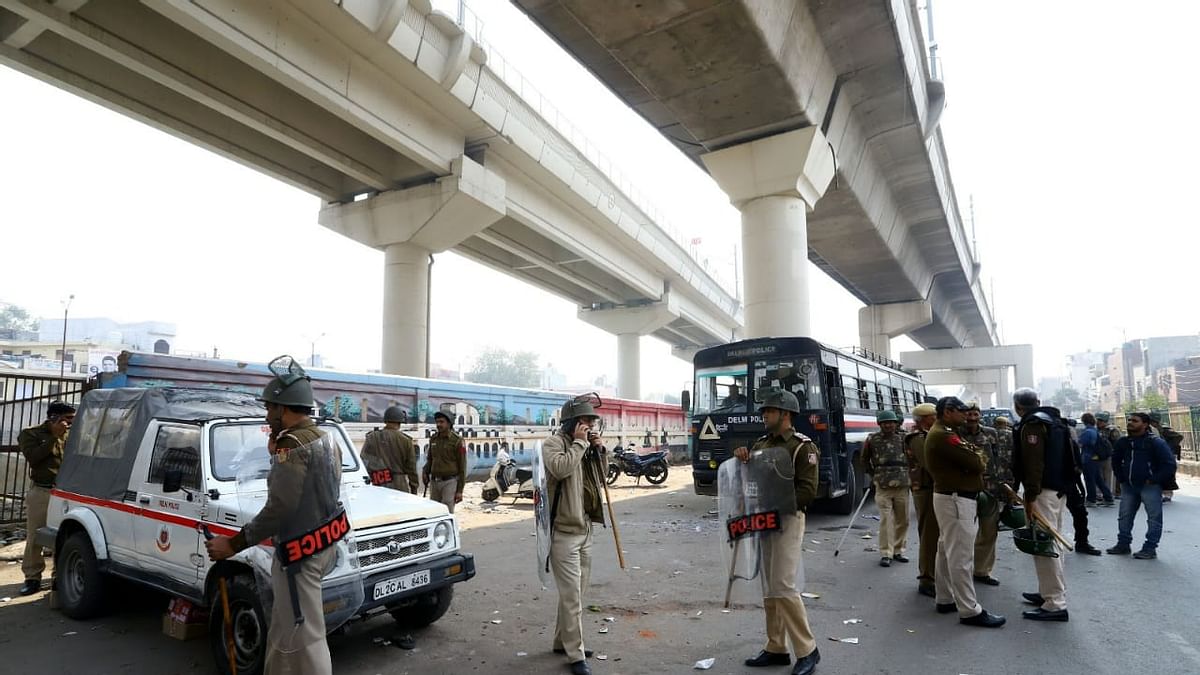
.png) Joseph Maliakan
Joseph Maliakan

The Delhi Police has been excelling in lawless behaviour for quite some time now. They very cleverly facilitated the brutal attack on Jawaharlal Nehru University students early this year. They stood like mute spectators when a mob attacked students and teachers and vandalised property. Incidentally, the members of the mob were wearing masks even before the coronavirus lockdown.
In another brutal incident from earlier this year, the Delhi Police forcefully entered the Jamia Millia Islamia campus and attacked students, grievously injuring several of them and destroying university property.
The actions of the Delhi Police have been so blatantly unconstitutional that 10 retired Indian Police Service (IPS) officers led by Julio Ribeiro, former Mumbai Police Commissioner and Director General of Punjab and Gujarat Police, in a letter to Delhi Police Commissioner S.N .Srivastava on September 14 described the police investigation into the February 2020 Delhi communal riots as totally flawed. I consider this a very mild indictment because an analysis of the latest actions of the Delhi Police reveals an absolutely colonial mindset that is totally opposed to constitutional values of freedom and democracy.
As a reporter who has covered communal riots in North India in the 1980s and 1990s for the Indian Express, I can say with certainty that communal riots and killings take place in India only at the instigation of political leaders and with the connivance of the police and even the local administration. The February North East Delhi riots were no different. The police actively connived with the rioters or looked the other way.
The riots were, as is now well-established, directed against the Muslim community and the vast majority of those killed were Muslims. Initially the Muslims did retaliate but were soon outnumbered. The police openly sided with the Hindus and even obstructed movement of ambulances carrying injured Muslims to hospitals.
There is nothing very unusual about the narrative so far. Total marginalisation of Muslims has been the aim of instigating communal disturbances even during previous Congress regimes. But what is very special this time is the weaving of a conspiracy theory and the arrest of young individual activists under the draconian Unlawful Activities (Prevention) Act (UAPA).
The UAPA has been on the statute books from 1967. But what has made it a lethal weapon against all kinds of dissent, free speech and protest is the 2019 amendment. Prior to the latest amendment, only organisations could be designated terrorist. Under the latest amendment, any individual without any prior notice could be designated a terrorist and arrested.
As against maximum of 15 days police custody in arrests according to other laws, an individual arrested under the UAPA can be kept in police custody for 30 days. Similarly, judicial custody under the UAPA can stretch up to 180 days as against a maximum of 90 days in other cases.
And though the Act does not bar the grant of bail by the courts, Safoora Zargar of Jamia university is the only one booked under the UAPA who has been given bail. Even she was granted bail by the Delhi High Court on humanitarian grounds, not on merit.
Initially 18 people, mostly young activists, were arrested by the Delhi Police in the conspiracy case. An offence under the UAPA has been made out against all of them – mostly PhD students from JNU and Jamia – to ensure that they remained in jail for a long period like those booked under the UAPA in the Bhima Koregaon case in Pune.
And as the time limit of 90 days for filing a charge sheet in the conspiracy case approached, the police on September 13 arrested Umar Khalid, a former JNU student, and charged him for offences under the UAPA, sedition and several other sections of the Indian Penal Code. This has been done to keep those who are being investigated in custody for 180 days pending filing of the charge sheet. Thus, the police have intentionally subverted the intent of the law.Investigations and trials take too long. Cases are not even sent to trial for a long time. At the end of 2018, of the 2005 cases under the UAPA only 317 have been sent to trial. Under the circumstances, even an acquittal at the end of the trial will mean very little to the arrested young students, some of whom are women.
Now the question is can the courts remain silent spectators when basic freedoms of the citizens are being blatantly trampled upon by the police. The courts must step in without any further delay.